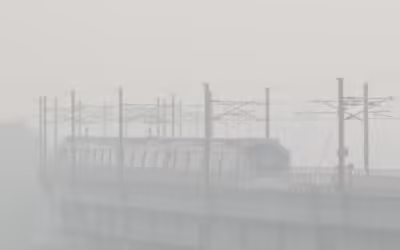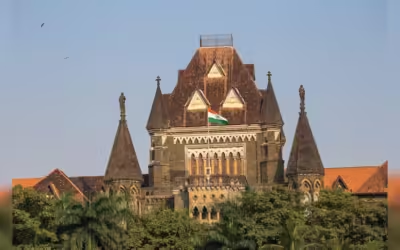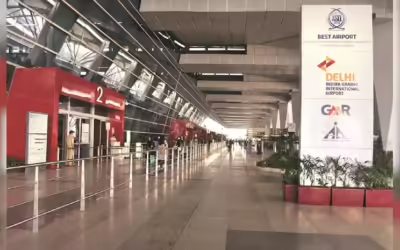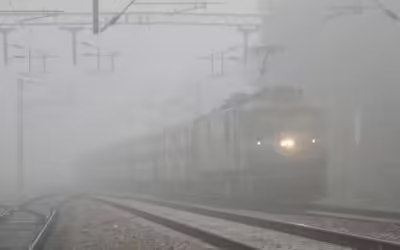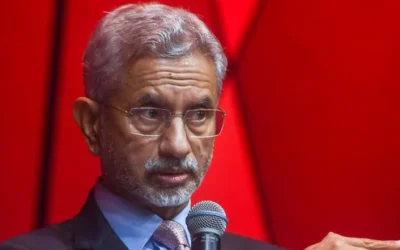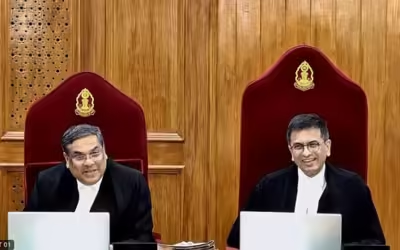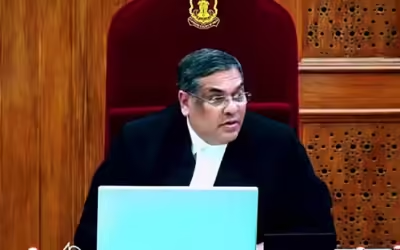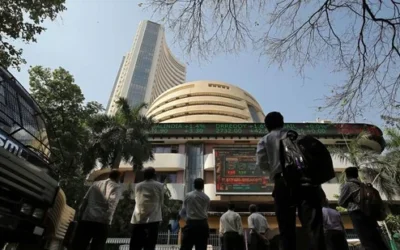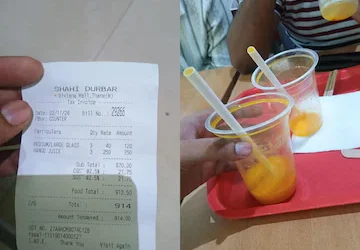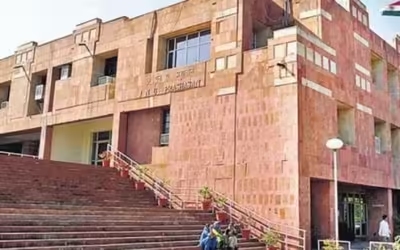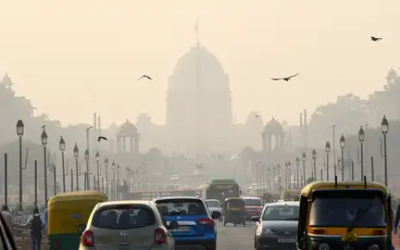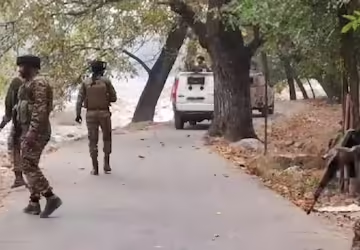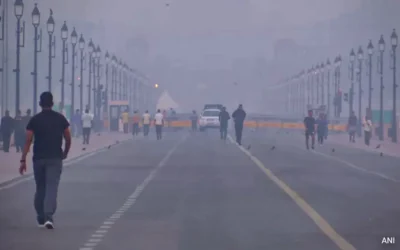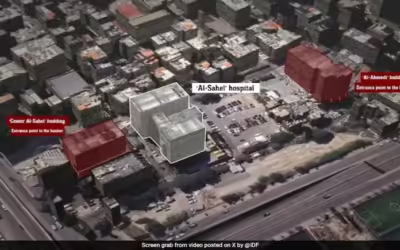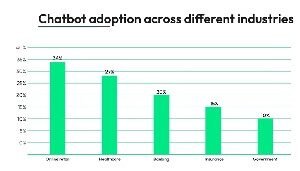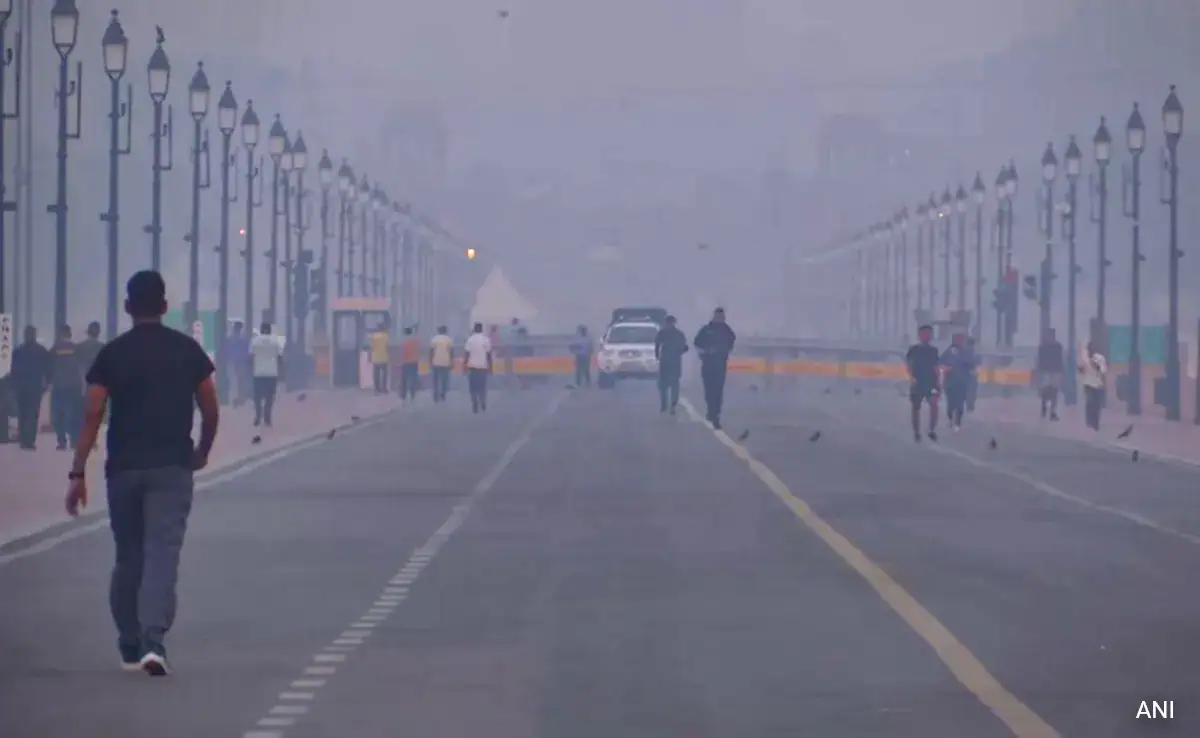This morning, Delhi recorded an air quality index of 317, categorizing it as “very poor.
In the recent days, the air quality index (AQI) in Delhi has deteriorated, leading the Commission for Air Quality Management (CAQM) to implement stage two of the anti-pollution plan GRAP today.According to the latest real-time information furnished by the System of Air Quality and Weather Forecasting and Research (SAFAR), Delhi’s Air Quality Index (AQI) stood at 317 by 8 am, categorizing it as “very poor”. The AQI scale ranges from 0 to 500, with ratings of 0-50 falling into the good category, 51-100 as satisfactory, 101-200 as moderate, 201-300 as poor, 301-400 as very poor, 401-450 as severe, and values exceeding 450 being classified as severe-plus.
The India Meteorological Department (IMD) foresees that Delhi’s daily average Air Quality Index (AQI) will likely linger in the ‘very poor’ range due to adverse meteorological and climatic conditions. The escalation of pollution levels in Delhi is frequently attributed to crop residue burning in neighboring states like Haryana and Punjab, particularly prevalent during the post-harvest period of October and November.
In the second phase of the GRAP (Graded Response Action Plan), limitations will be imposed on the utilization of coal, firewood, and diesel generator sets within the Delhi-National Capital Region (NCR).
Daily mechanical sweeping and water sprinkling will be conducted on specified roads, with dust control regulations strictly implemented at construction and demolition sites.
Moreover, congestion points will have traffic personnel stationed, private transport will be discouraged by raising vehicle parking fees, and extra bus and metro services will be introduced.
Recommendations have been made for individuals to opt for public transportation and reduce the reliance on private vehicles. Furthermore, it has been suggested that they maintain the timely replacement of air filters in their cars while steering clear of construction activities that produce dust between October and January.
Residents of Delhi-NCR have also been advised against engaging in the practice of open burning of solid waste and bio-mass.
Additionally to the measures implemented in GRAP Stage 1 starting on October 15, the following steps have been introduced. Stage 1 includes regular mechanised sweeping and watering of roads, as well as dust control at construction sites. Furthermore, activities such as open burning of waste, the utilization of coal or firewood in eateries, and the unrestricted use of diesel generators have been prohibited.
Stage 3 Limitations
The third stage of the GRAP comes into effect when the AQI stays within the range of 401 to 450. Here are the subsequent measures implemented at this stage:
- Enhance the frequency of mechanized road sweeping and daily water sprinkling, incorporating dust suppressants before the rush hours on roads and key areas. Increase the availability of public transportation with discounted rates to promote non-peak hour commuting. Halt mining and stone-crushing operations. Enforce stringent regulations on BS lll petrol and BS lV diesel four-wheelers, impose strict limitations on Delhi-registered Diesel Medium Goods Vehicles (MGVS) to meet BS-lll standards. Prohibit diesel-operated Light Commercial Vehicles (LCVS) of BS-lll and lower standards registered outside Delhi from entering the city. Restrict inter-state buses from NCR states, excluding EVs/CNG/BS-VI diesel vehicles, from entering Delhi. Consider suspending in-person classes for students up to Class V. Implement rigorous controls on construction and demolition works.ore peak traffic hours, on roads and hotspots.
- Further intensify public transport services with rates to encourage off-peak travel.
- Stop mining and stone-crushing activities.
- Strict restrictions on BS lll petrol and BS lV diesel LMVS (4 wheelers), strict restrictions on Delhi-registered Diesel operated Medium Goods Vehicles (MGVS) to BS-lll standards, BS-lll and below diesel operated LCVS (goods carriers) registered outside Delhi not permitted to enter Delhi, lnter-State buses from NCR states other than EVs/CNG/BS-Vl diesel, to not enter Delhi,
- Possible discontinuing physical classes in schools for children up to Class V.
- Strict curbs on construction and demolition activities.
Imposition of Limits in Stage 4, with AQI Exceeding 450
Once the Air Quality Index (AQI) in Delhi surpasses 450, Stage 4 of the Graded Response Action Plan (GRAP) is activated, signifying the severe-plus category.
The following actions are subsequently carried out:
- Truck entry into Delhi has been halted.
- Prohibition of construction and demolition operations is imposed on linear public undertakings like highways, roads, flyovers, overbridges, power transmission facilities, pipelines, and telecommunication infrastructure.
- Physical classes for Classes VI to IX and Class XI can be ceased by the government.
- A ruling can be made by the authorities to permit public, municipal, and private institutions to operate with half their workforce present in the office while the remaining employees work remotely.
- In contemplating further emergency actions, state authorities might evaluate options such as shutting down colleges and educational institutions, ceasing non-essential commercial operations, and implementing odd-even vehicle usage based on registration numbers.
- It is advised that children, the elderly, and individuals with respiratory, cardiovascular, cerebrovascular, or other chronic conditions should refrain from engaging in outdoor activities and instead remain indoors.
The Delhi government kicked off its anti-air pollution initiative, the “Red Light On-Gaadi Off” campaign, earlier today.
Initiating the campaign from the ITO intersection, Gopal Rai, the Delhi Environment Minister and a prominent figure in the Aam Aadmi Party (AAP), urged motorists to combat pollution by switching off their engines when waiting at red signals.
Mr. Rai also mentioned the establishment of a green war room by the Delhi government to tackle pollution. In addition, an anti-dust initiative has been introduced to manage dust pollution, and over 5,000 acres are being treated with bio-decomposer to break down stubble.











